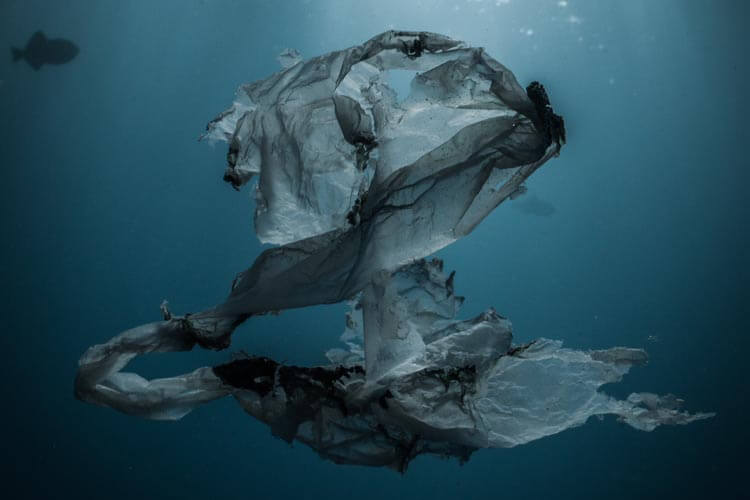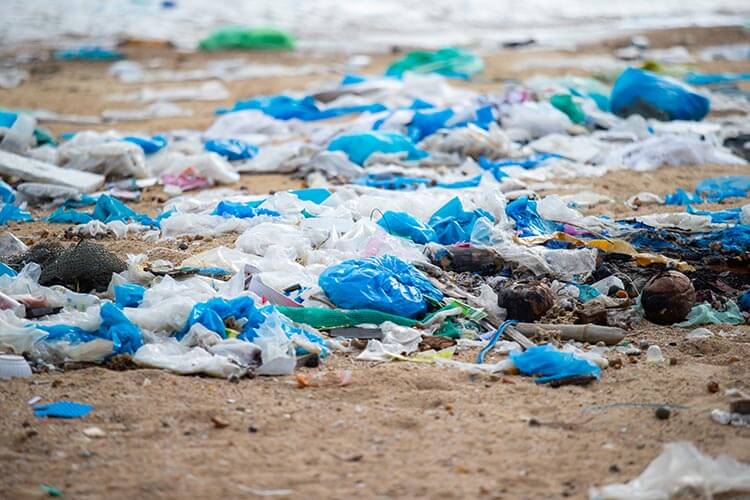
By DIVE Staff
With Plastic Free July 2023 just around the corner, the US-based Ocean Conservancy has published a new report, ‘Charting a Course to Plastic Free Beaches,’ which takes nearly 40 years of beach clean-up data from its International Coastal Cleanup (ICC) initiative to target ten single-use plastic items most commonly polluting shorelines around the world.
The first part of the report, released on 27 June, calls for ‘source reduction’ policies to prevent various litter items from being disposed of near beaches, such as bans on the use of plastic/polystyrene food containers, bags, utensils, straws, and cigarette filters.
‘This report leverages decades of International Coastal Cleanup data to forge a clear path of action so that we can all make the dream of plastic-free beaches a reality,’ said Nicholas Mallos, Vice President of Ocean Plastics at Ocean Conservancy. ‘The first step is simple: take the worst offenders off of shelves.’
Related articles
The five items highlighted in the new’ report are among the ten most common plastic items collected by ICC volunteers since the clean-up effort began in 1986. An analysis of ICC data published in 2021 found that nearly 70 per cent of such items are, effectively, unrecyclable.
The Ocean Conservancy report, which provides case studies and examples of policy actions to address each item, estimates that bans on these five items across the US would cut plastics usage by about 450 billion pieces each year, equivalent to approximately 1.4 million tons of plastics in the United States alone.
Top 10 plastic items collected by ICC volunteers (1986-2021)
| ITEM | TOTAL |
| Cigarette Butts | 59,398,908 |
| Food Wrappers (candy, chips, etc.) | 28,445,467 |
| Beverage Bottles | 21,810,732 |
| Plastic Bags (Grocery and Other) | 21,538,520 |
| Bottle Caps | 16,903,325 |
| Straws, Stirrers | 14,643,574 |
| Foam Foodware (Take Out Containers and Cups, Plates) | 7,951,707 |
| Cups, Plates | 7,278,840 |
| Lids | 6,736,583 |
| Forks, Knives, Spoons | 6,343,756 |
‘We have nearly 40 years’ worth of clean-up data showing that these five items are some of the most common and harmful types of plastics found on beaches worldwide, and what ties them all together is that the only viable solution is to eliminate them altogether,’ said Dr Anja Brandon, associate director of US plastics policy at Ocean Conservancy. ‘Not only would eliminating these items have an immediate positive impact on beaches and waterways, but it would also help us improve recycling by keeping some of the most common non-recyclable items from mucking up our waste stream.’
Part two of the report, which will be released in the coming months, will cover how reuse systems can help reduce our reliance on the remaining top ten items; while part three will focus on the policy solutions needed to fix plastics recycling.
Since 1986, nearly 18 million ICC volunteers have collected 175,000 tons (159,000 tonnes) of beach litter with a tally of more than 381 million items removed from beaches and waterways around the world.

‘Data are what set the International Coastal Cleanup apart from other beach cleanup efforts,’ “For over three decades, volunteers have done the incredible and often tedious work of recording every piece of trash they collect because it drives change,’ said Allison Schutes, Ocean Conservancy’s International Coastal Cleanup director. ‘Scientists, policymakers, journalists, and countless others have used the International Coastal Cleanup dataset to better understand and help tackle the global plastic pollution problem. With this report, our hope is that these data can continue to drive policies that stop plastic pollution at the source.’
Data submitted through Ocean Conservancy paper data cards or its mobile app, Clean Swell, are uploaded to Ocean Conservancy’s global Ocean Trash Database.
In 2022 and 2023, more than 50 peer-reviewed scientific papers and published book chapters cited ICC data. ICC data have also been used to support policies that tackle single-use plastics, including recent stories about Illinois’ ban on foam foodware; Hawaii’s proposed plastic bottle ban; and Laguna Beach’s recently passed balloon ban.
This year’s International Coastal Cleanup will take place throughout the month of September. To learn more visit signuptocleanup.org, or head to the Ocean Conservancy website at oceanconservancy.org, or follow the team on Facebook, Twitter or Instagram.


